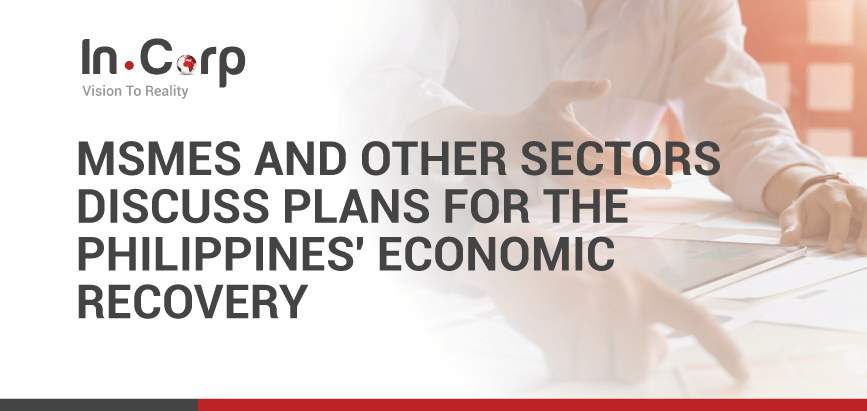
MSMEs and Other Sectors Discuss Plans for the Philippines’ Economic Recovery
Micro, small, and medium-sized enterprises (MSMEs) are one of the most affected by the COVID-19 pandemic as it caused worker displacement and loss of livelihood.
As of November 2021, it is reported that about 10% of small businesses were either permanently or temporarily closed. With the unfortunate effects on MSMEs, the progressive shift to the “new normal” gave hope to millions of small entrepreneurs in the country.
The Institute for Solidarity in Asia (ISA) understood that a discussion on navigating uncertainties in any crisis was an essential conversation to help move our nation forward.
Last April 11, ISA conducted its first #ISAngKilosBayan webinar for the year entitled, “Business As Usual: Philippine Resiliency through Economic Recovery,” which summoned notable government, private, and MSMEs sector representatives to talk about effective and sustainable Philippine economic recovery amid the COVID-19 pandemic.
Both public and private sector representatives tackled the 10-point policy agenda, a proposal drafted by the Economic Development Cluster (EDC) and National Economic and Development Authority (NEDA) to hasten the country’s economic recovery from pandemic through a whole-of-government approach of aligning programs with the national government.
Moreover, these representatives also engaged with local entrepreneurs to address their concerns as MSMEs. Together they highlighted the importance of local businessmen and other critical sectors in the country’s overall economic recovery.
The webinar discussed and raised several points such as the significance of an economic recovery plan, the need to embrace a digital transformation, and the crucial role of communication between the government and other sectors. NEDA Assistant Director Desiree Narvaez mentioned that the 10-point policy agenda was a move in the right direction since having a playbook ready was one of the lessons they learned from the pandemic.
Narvaez stated, “Admittedly, there may be some gaps in the past, but that’s something that we can learn from. So now we’re moving forward and trying to implement changes and policies to correct and link the gaps.”
DOF Policy, Research, and Liaison Office Director III Lyonel Tanganco cited that the policy agenda was a welcomed development and that there is always hope in learning how to live with the circumstances and continue doing business.
On the other hand, the Union Bank of the Philippines Chief Economist Ruben Carlo Asuncion expressed that like in any other country the government can never be truly prepared for intense situations such as the pandemic. Making reinforcements like the policy agenda is a practical and valuable approach.
In addition, he stated that this leaves the Philippines in a state of waiting and seeing what happens: “Wait and see means you’re withholding something–your investment, your expansion. So it’s very important that at least at this point, we have this.”
PMTZ Care Marketing sole proprietor Teofanie Zamora Tutanes observed that the current economic landscape seemed to communicate that digitization is one way to avoid business failure, prompting her to ask how the government was helping MSMEs make the change.
Tanganco answered that the Department of Trade and Industry (DTI) could help with digitization through its Negosyo Centers and the SME Roving Academy programs. In addition, Narvaez cited that the Technical Education and Skills Development Authority (TESDA) should also have free courses relevant to MSME digitization.
For Delicioso Homemade Ham owner Dianna Azores, the external factors and her personal business situation made her consider online platforms and realize their advantages for her business. Asuncion mentioned that businesses that did not utilize online platforms would miss opportunities and will end up competing with digital counterparts. He advised that businesses should determine their niche, “Innovation, being agile, and listening to advice can ensure your success.”
Narvaez expressed that they put up an innovation staff to focus on their medium and long-term goals and pushed for several legislative agendas to facilitate the country’s digitization process.
She pointed out that if the Philippines will not go digital, it will be left behind.
On the other hand, Azores suggested the government to conduct a study to better understand the actual needs of MSMEs and gain feedback on existing initiatives, resulting in a more concrete plan for MSMEs’ economic recovery.
Economic Development Foundation Executive Director Francis Gentoral stated, “We want businesses to be sustainable, requiring good planning and a good government approach. As [Tutanes] has said, those who are saving, spending, and investing should work together to build the eco-system for the resiliency of our local economy through MSME Development.”

